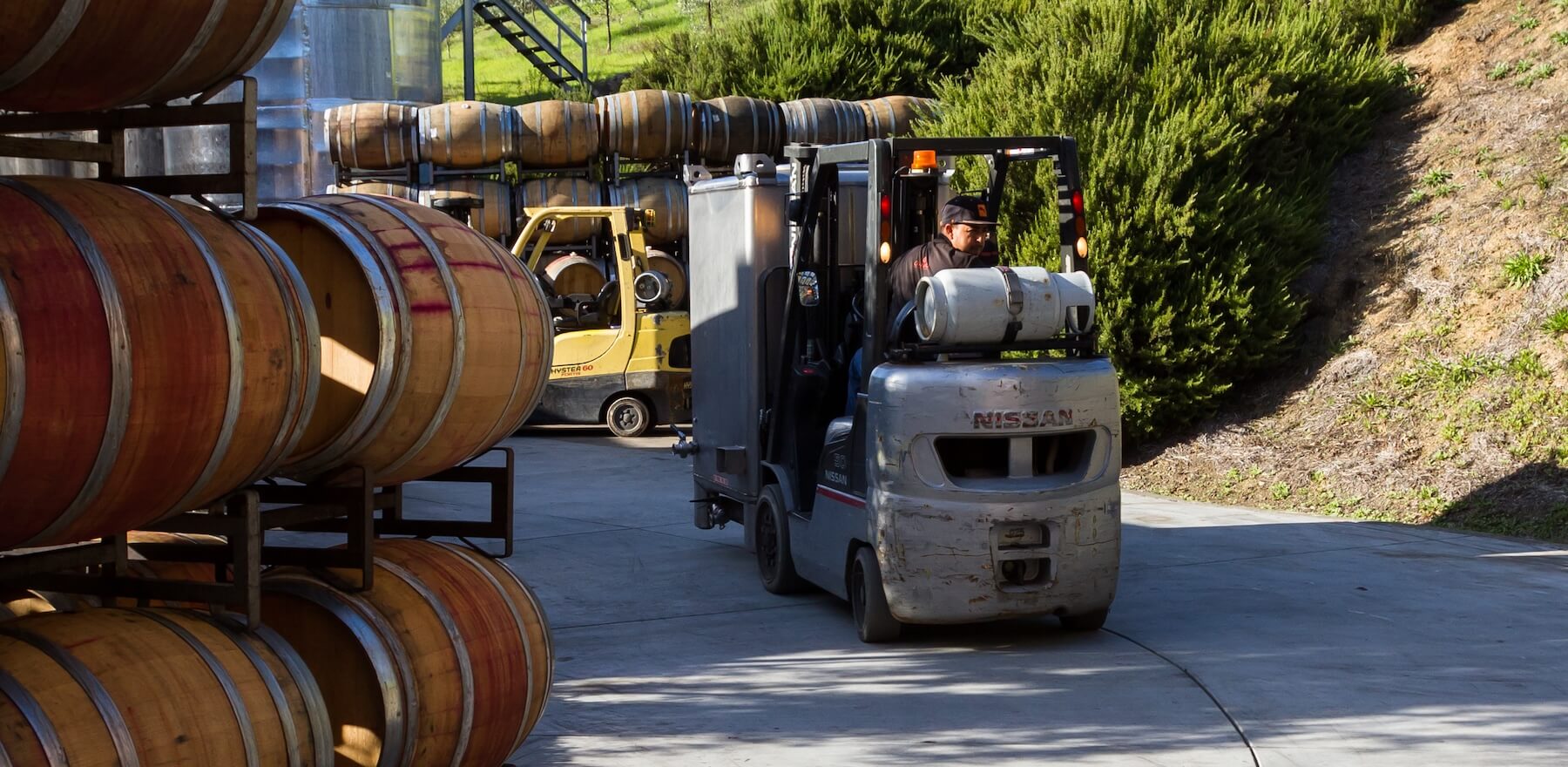Today’s business and media landscapes have heightened the importance of crisis management in all industries, including – of course – beverage alcohol. Distilleries and other bev-alc producers must always keep the public perception of their brands, organizations and operations at the forefront during times of both calm and calamity.
Many would argue that distilleries are unique businesses where the art of crafting spirits meets the science of production and management. Each batch and bottle is a testament to dedication, creativity and craftsmanship. However, behind the romance of artisanal beverages, distilleries often face daunting challenges – crisis lurking in the shadows, ready to strike without warning.
Distilleries may confront a multitude of crises, from the devastation caused by natural disasters to product recalls to outsized customer complaints – all or any of which can damage a company’s reputation. A crucial question arises:
how can distilleries weather these storms without a specialized communications department? A distillery crisis plan, that’s how. Keep scrolling to learn how any distillery, no matter the size or number of resources at disposal, can develop a robust crisis management plan to guide leadership during challenging times.
A well-crafted plan won’t just help you navigate through a crisis, it will also empower you with the tools and confidence to protect your brand and ensure the continued loyalty of your customers. Preparedness doesn’t necessarily require an army of PR pros. Often a well-organized, aware and agile plan of attack is sufficient. Let’s dig a little deeper into understanding the need for a distillery crisis plan, a road map to devising an effective one and tips to maintain this plan in the long run. We welcome you to tailor this guide as needed to fortify your distillery’s resilience against crises – with or without a communications team.
Understanding the Need for a Distillery Crisis Plan
Customers can be (and often are) oblivious to trouble brewing behind the scenes of their favorite distilleries. However, those operating in the industry are all too familiar with the spectrum of risks involved in the bev-alc sector. Crisis management is not merely a protective shield in times of trouble, but an integral thread in the fabric of business operations, deserving equal attention and resources as any other critical business functions.
Identifying Potential Crises
To understand the need for a comprehensive crisis plan, one must first become familiar with the tangle of potential crises. Craft spirits producers may face a cyclone of problems such as:
- Mishandled product launches
- Inappropriate conduct by employees or leadership
- Natural disasters that damage storage warehouses or production facilities
- Unexpected product recalls due to quality issues
- Legal disputes or regulatory issues
And the list goes on. As diverse as these crises are in nature, they all share a common denominator: the potential to severely disrupt business operations and tarnish a distillery’s image.
The Impact on Brand and Reputation
A brand is more than just a label on a bottle; it’s a distillery’s promise to its customers. There’s trust embedded in every sip, making customers come back for more. In the age of social media and 24-7 access to news, even a single mishandled crisis can rupture that trust, tarnishing a brand image carefully built over time.
Take, for instance, the tale of a hypothetical distillery: G&G Artisanal Gin. G&G had been growing like gangbusters until an unexpected quality issue led to a large-scale product recall. Unfortunately, G&G didn’t have a proper crisis management plan in place, and key information about the recall, like lot numbers and purchase timelines, came out too late. Customers, being left in the dark, turned to speculation and rumors. The result? A disappointing plunge in customer trust and brand reputation, translating into substantial financial loss for G&G.
What could have been done differently? To avoid such a situation, it is crucial to understand the need for, develop and maintain a robust distillery crisis plan. A well-crafted plan can help mitigate the immediate fallouts of a crisis, work to protect the brand name of your products and company, and maintain consumer loyalty in the long run. Now we know the use case, let’s dive into exactly how to build the optimal distillery crisis management plan for your business.

Developing a Comprehensive Distillery Crisis Management Plan
Crisis management plans are as unique as the businesses they serve, with obvious differences due to an organization’s size, funding, distribution, and location. However many fundamental elements hold universal appeal, including: assigning clear roles, crafting fool-proof communication strategies, preparing for multiple types of crises and scenarios and deploying intelligent tools to better equip your team.
The Who’s Who of Your Crisis
The first step in fending off a crisis is to ensure that everyone involved knows their part in its management. Consider designating a crisis manager who will anchor the overall plan and mobilize the team when a disaster strikes. If the distillery doesn’t have an in-house PR team or communications officer, consider training a spokesperson who can handle media interactions and clarify the distillery’s official stance. The roles could look something like this:
- Crisis manager: Organizes the team, briefs appropriate staff members on action plan and sets into motion the outlined communication strategy
- Spokesperson: Conveys official statements to the public and media
- Crisis team: Works under the guidance of the crisis manager to execute the various aspects and steps of the crisis plan
Remember, the key is to have people ready and trained to step into these roles when needed. Employees who have a history of working well under pressure and keeping a cool head in emergencies make a great fit for this team. For small distilleries, the crisis manager and spokesperson may be the same individual. Oftentimes it is the owner or someone in a leadership position.
Crafting Communication Strategies
Effective communication is another critical step in managing a crisis. Be prepared to communicate quickly and transparently with everyone involved – employees, investors, vendors, customers and the media. From immediate updates about the occurrence to inquiry response, a planned communication strategy can and will strengthen your brand’s appearance during an emergency situation.
A few suggestions to consider:
- External communication: Craft quick, transparent and consistent messaging to be distributed to customers, suppliers, media and the community.
- Internal communication: Deliver regular updates to all employees to ensure everyone is aware of the incident, familiar with the public-facing messaging and knows how to route inquiries.
- Social media: Your company profiles can serve as a powerful platform to share strategic updates and manage perception.
Preparing for Different Types of Crises
A comprehensive communication response plan spans a gamut of potential crises – each requiring a unique response. If you’re tempted to draft boilerplate communications, consider the possibility of a natural disaster damaging your warehouse. The immediate response is completely different from one needed during a product recall.
Different types of crises your distillery could face, and needs to be prepared to address, include:
- Natural disasters: Focus on employee safety, damage control and recovery.
- Product recalls: Deliver swift, informative communication with customers and regulatory authorities.
- HR issues: Handle with sensitivity while ensuring employee morale and public image do not take a beating.
Tools to Enable Your Team for Action
Drafting a plan and assembling your team is only part of the equation. You also must equip your distillery crisis management team with the necessary tools and resources they need to effectively execute the plan.
From software solutions to training, here are tools your distillery should consider acquiring to better prepare you when a crisis strikes:
- Cloud-based file storage: Since your communication plan is likely digital, make sure it’s stored in a central location that’s easily accessible by your crisis team from anywhere, any time of day. Keep one copy that everyone can update and reference as needed.
- News alert: Create a news alert that scans the web for key phrases and names as new information drops. You can set up email alerts that include your company name, product names, employee names, city or any number of terms related to your distillery.
- Training programs: Consider enrolling key team members in a crisis management training course. There are many options tailored to skill level and experience, and even distillery-specific resources available.
- Distillery management software: Depending on the type of crisis at hand, you may need to quickly trace a specific batch or barrel or where a product ended up, or you might need to pull key financial data. Distillery management software allows you to keep accurate records that are easily accessible by leadership and your crisis management team.
Remember, the best plans are flexible and adaptable. They morph to fit the crisis at hand. Now, with a plan and tools in place, the next step is to implement it effectively and ensure it remains robust and relevant over time.

Implementing and Maintaining Your Distillery Crisis Plan
Crafting an effective crisis plan is only the first step in shielding your distillery from potential chaos. To ensure its efficacy in real-world conditions, meticulous implementation, upkeep and continuous learning form the other critical aspects. Let’s explore some strategies to keep your crisis plan robust, adaptable and effective.
Regular Review and Rehearsal
What’s a plan worth if it is easily fumbled during execution? Rehearsing your crisis management strategy is just as important as creating it. Consider regular workshops or drills to gain confidence in your team and help them be better prepared to implement the plan swiftly and efficiently. Additionally, regularly review and update the crisis plan to align with changes in team members, business operations, market conditions or regulatory climates.
Leveraging External Resources
While your team might handle most crises, know that it’s acceptable (and sometimes advantageous) to seek external help. A crisis management consultant or a specialized PR agency can bring substantial expertise and perspective to your distillery crisis plan. Their day-to-day experiences across a variety of industries and varied crises can enrich your plan and make it more comprehensive.
Monitoring and Learning
Lastly, keep your plan dynamic: a living, evolving entity that learns from other emergency situations, be it your own or those you hear about. Institute processes to monitor and analyze what worked and what didn’t. Continually fortifying your plan will make it more agile and intuitive over time.
Be Ready for the Unknown
The above is not an all-inclusive guide but a foundation for distilleries embarking on creating or fine-tuning a crisis plan. Developing, implementing and maintaining a distillery crisis plan without a PR team may seem daunting but remember: the price of being unprepared is far greater. A robustly managed crisis can, at times, even elevate your reputation, marking you as a resilient and responsible player in the industry.
Remember, your spirits soothe and celebrate moments in your customers’ lives. Ensure your brand continues to evoke that trust and joy, even during a crisis. Stay resilient, keep crafting and keep your spirits high, in every possible way!
Don’t leave your data open to crisis! Crafted ERP Distillery Edition is a scalable, configurable ent-to-end solution that manages every aspect of your craft spirits operation. From production to lot tracing to accounting to inventory management, have access to all essential data anytime, anywhere.





